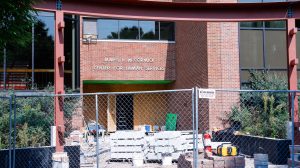Self-sufficient and Healthy Living with Tom Anderson
October 10, 2022
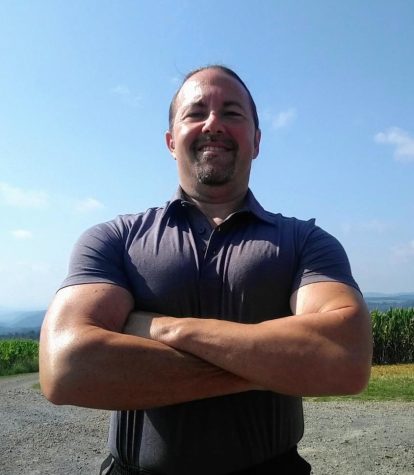 Thomas Anderson is a local figure residing in Mount Pleasant Township in Columbia County. During the day, he is a full-time software engineer for the Pennsylvania College of Technology, while he maintains his part-time peacekeeping role as “Constable Tom” in the evenings. Anderson is making big changes as he is running for a second time for State Representative. Anderson is a libertarian with many strong personal beliefs.
Thomas Anderson is a local figure residing in Mount Pleasant Township in Columbia County. During the day, he is a full-time software engineer for the Pennsylvania College of Technology, while he maintains his part-time peacekeeping role as “Constable Tom” in the evenings. Anderson is making big changes as he is running for a second time for State Representative. Anderson is a libertarian with many strong personal beliefs.
While being involved in politics is one way of living, Anderson abides by an active, self-sufficient lifestyle. Anderson has implemented many healthy living values into his own personal daily habits, but he also dabbles in sourcing his own energy.
Thomas is a vocal advocate of taking charge of one’s own life, including one’s health, finances, and level of readiness in general. He follows an intermittent fasting and ketogenic diet, goes to the gym frequently, and swims roughly a mile every day throughout the summer. In addition to tapping his maple trees for syrup, he enjoys creating wine from his fruits.
Amid Amish farms, dairies, and wildlife lands on his 32-acre mountaintop, he designed and constructed his off-grid home. He has owned his land since 2003 which was just a cornfield at the time. His home is totally powered by solar and wind energy, with wood and passive sun heating. 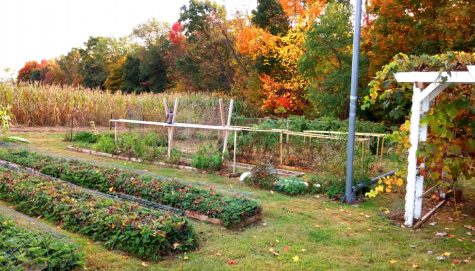
How has politics influenced his lifestyle? Anderson shared, “One of the things that has influenced me as far as my health is concerned is the things that are put out by the government, the CDC, and other government- aligned associations like the American Heart Association and the American Diabetes Association. I have found that they have been the opposite of the right thing to do.”
He continued to share, “So back in 2012, I was about 285 lbs. I had been following the suggested guidance of my doctor and his organizations for my entire life. Like you’re too heavy, you need to do stuff. Follow this diet. Follow that diet. And they’re always of course low-fat, high-carbs right?”
In 2012, he injured his back gardening. He stated that following that advice almost caused him to be paralyzed because he had damaged his spinal cord due to a disc in his back fracturing in his current state of health. He was bedridden for months and he decided to dive into the actual science behind improving his health. 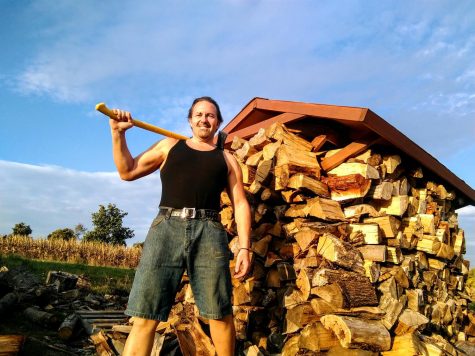
What he found astounded him due to the information being contrary to what he had been told his whole life. This led Anderson to lose more faith in the government [than what he had already lost] and to live a healthier life growing his own food in his garden and eating better.
Anderson benefits from an intermittent-fasting, ketogenic diet. In the mornings, he typically starts his day with a plain, black coffee “just to have something”. Then, he will fast all day until he exercises in the evening. The workout is completed while fasting, then he will eat a meal afterward. Yet, that will be his only meal of the day. Fasting benefits Anderson by allowing him to keep insulin levels balanced to avoid damage to internal organs, any sort of typical illnesses or diseases, and to, most importantly, steer away from cancer.
What inspired the initiative build an “off-grid home”? As far as why he decided to do this, it was actually a result of 9/11. At the time, Anderson was residing in New Jersey where he previously resided in his younger years. He graduated in 2000 with a bachelor’s degree in Computer Science and a minor in Philosophy from Stevens Institute of Technology in Hoboken, NJ. After witnessing the aftermath and destruction of 9/11, he “witnessed society become a tyranny”. He did not want any part of it anymore and moved to Pennsylvania. 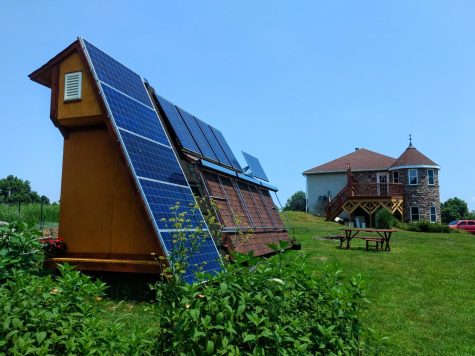
He rejected the locking up of our nation, which coincidentally happened within the last few years for the coronavirus pandemic. He shared, “When I did [move to Pennsylvania], I wanted to live off-grid, be self-sufficient, make my own energy, water, food, and everything. With this, I could take care of my family at what may come.”
The building strategy was first based from what people were doing in the 1970s and before there even was electricity. He continued to share, “So, I have technologies in this house from the farmhouses in the 1800s before they were electrified because they were built passive solar and in a way that would conserve energy.”
His house also employs this technique, which involves absorbing solar energy into the structure’s materials and then dissipating it when the sun isn’t shining. The wind turbine on the property had been knocked down during a storm a few months prior, but that is in repair. Some technologies within the home go back to the Mesopotamians and having drawing air from the ground into the buildings. His way of living is “net-positive” because any productivity he creates does not have an impact on society or the environment, other than the initial production costs. 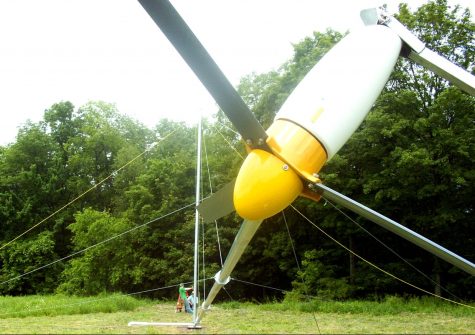
Anderson tackles self-sufficiency from multiple angles. One is within supplying energy and environmentalism, but another angle is being sufficient for oneself. He believes the government is pushing society into a direction where only the self-sufficient will prevail. The idea behind it is that many citizens across the nation are dependent on the government but are also being steered away from the American dream, independence.
During the day, he works for a smaller branch, the Workforce & Economic Development Network of Pennsylvania, training which is run by Penn College. This particular group organizes training for new employees who need to learn machinery or software within their careers. This organization strengthens many workers to become more efficient within their own fields, making the work force stronger.
Students at Bloomsburg University know him well for his peacekeeping work for off-campus student housing. He shared, “They love me. I love them. It’s a mutual love. But I’m just always looking out for their best interest, safety and security, and for the off-campus student housing providers who pay us. The whole idea is just to prevent any fights, altercations, overcapacity, parties, trespassing, or anything that’s a breach of the peace.”

















